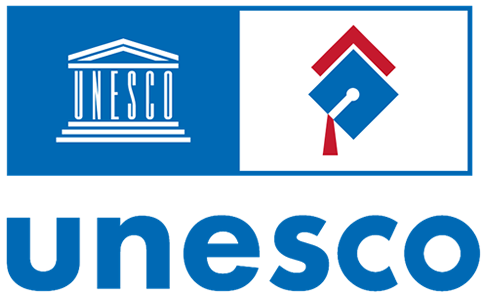Tendances et défis de la virtualisation des cours : évaluation pilote institutionnelle
Résumé
Cet article rassemble les principaux résultats et discussions issus de l'évaluation du dispositif institutionnel dit « Pilote de virtualisation des cours » développé à la Faculté des Sciences Sociales de l'Université de la République-Uruguay en 2022. L'objectif était d'identifier les conditions institutionnelles de développement de propositions pédagogiques virtuelles et hybrides basées sur l'évaluation de l'expérience pilote. Des objectifs spécifiques ont été soulevés visant à l'évaluation de cette expérience par les étudiants, les enseignants et les fonctionnaires. Il s'agit d'un travail d'analyse à des fins d'évaluation, dans lequel ont été évalués le processus et les résultats de 41 cours au cours de l'année 2022. Pour cela, une ligne directrice d'observation de cours a été utilisée sur la plateforme virtuelle (EVA), les performances des étudiants et une analyse descriptive des les résultats globaux des sujets faisant partie du pilote, l'expérience des étudiants, l'expérience d'enseignement et celle des fonctionnaires a été réalisée au moyen d'enquêtes et d'entretiens. Il a été observé qu'en 2022, il y a eu des améliorations dans les performances des étudiants par rapport à 2021 et des diminutions en termes de rétention dans les cours et une diminution des inscriptions à la Faculté. Divers aspects positifs ont été relevés par les intervenants et des aspects sur lesquels approfondir, notamment les critères d'inclusion des étudiants dans les modalités virtuelles, les conditions de travail des enseignants et les modalités de mise en œuvre, en passant par une discussion sur l'offre de parcours académiques et étudiants.
Références
Hodge, Ch. Moore, S. ET AL (2020), The difference between emergency remote teaching and online learning. Disponible en https://er.educause.edu/articles/2020/3/the-difference-between-emergency-remote-teaching-and-online-learning
Marciniak, R. y Gairín Sallán, J. (2018). Dimensiones de evaluación de calidad de educación virtual: revisión de modelos referentes, en Revista Iberoamericana de Educación a Distancia
Moreira, A. y Adell, J. (2009). eLearning: Enseñar y aprender en espacios virtuales. En J. De Pablos (Coord): Tecnología Educativa. La formación del profesorado en la era de Internet. Aljibe, Málaga, pp. 391-424.
Orozco Torres, L. M. (2014). Estudio comparativo de los modelos de evaluación de la calidad del e-learning en el Sistema de Universidad Virtual de la Universidad de Guadalajara - México y propuesta complementaria. Universitat de Lleida
Pontoriero, F. (2021) E-learning en la educación superior argentina - Modelo de evaluación de calidad a partir del aporte de referentes clave Virtualidad, Educación y Ciencia
Porta, M y Casnati, A. (comp.) (2021) Enseñanza con tecnologías digitales. Udelar. Montevideo
UAE- FCS - UDELAR (2022 y otros) Datos de enseñanza. Indicadores producidos por la UAE en el marco del Sistema de Indicadores para el Seguimiento y la Evaluación del Plan de Estudios 2009.
La ficha técnica de cada indicador puede encontrarse en: https://www.colibri.udelar.edu.uy/jspui/handle/20.500.12008/32183
Los datos presentados se encuentran en https://cienciassociales.edu.uy/ensenanza/unidad-de-asesoramiento-y-evaluacion/datos-de-ensenanza/
Copyright (c) 2023 Mariángeles Caneiro, Romina Hortegano, Florencia Sanz, Jenny Segovia, Sofia Vanoli Imperiale

Ce travail est disponible sous licence Creative Commons Attribution - Pas d’Utilisation Commerciale 4.0 International.
Avis de droit d'auteur
Le droit d'auteur permet de protéger le matériel original et d'empêcher l'utilisation du travail d'autrui sans autorisation. L'UNESCO IESALC adhère aux licences Creative Commons pour la publication en libre accès de l'ESS. Plus précisément, les textes publiés dans ce journal sont soumis à une licence Creative Commons Attribution-NonCommercial 4.0 International (CC BY-NC 4.0) : ESS est une revue en libre accès, ce qui signifie que tout le contenu est mis gratuitement à la disposition de l'utilisateur ou de son institution. Les utilisateurs peuvent lire, télécharger, copier, distribuer, imprimer, rechercher ou créer un lien vers le texte intégral des articles, ou les utiliser à toute autre fin légale, sans demander l'autorisation préalable de l'éditeur ou de l'auteur, en veillant toujours à citer l'auteur. L'utilisation commerciale n'est pas autorisée. L'ESS demande aux auteurs d'accepter l'avis de droit d'auteur dans le cadre du processus de soumission. Les auteurs conservent tous les droits.
La licence complète peut être consultée à l'adresse https://creativecommons.org/licenses/by-nc/4.0/
 Attribution - NonCommercial (CC BY-NC 4.0)
Attribution - NonCommercial (CC BY-NC 4.0)
Cette revue ne fait pas payer les auteurs pour la soumission ou le traitement des articles. Les auteurs des contributions recevront un accusé de réception indiquant que leur travail est parvenu à l'équipe de rédaction de la revue.




.png)
